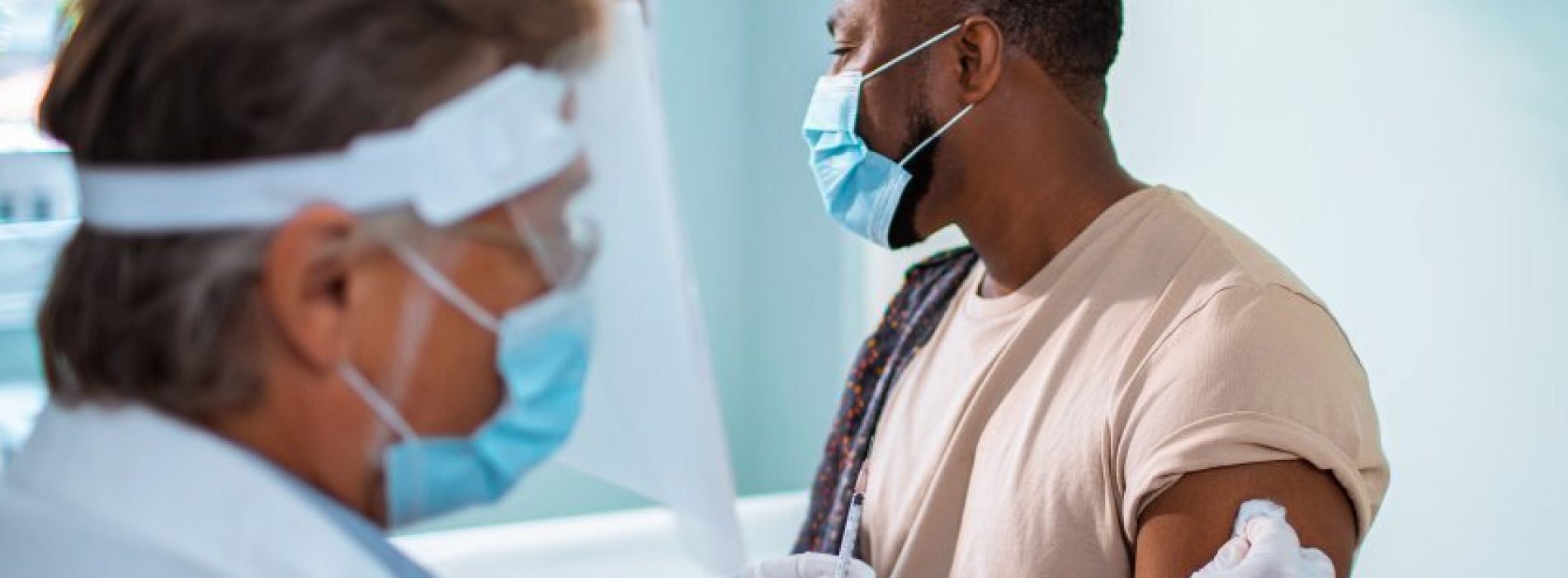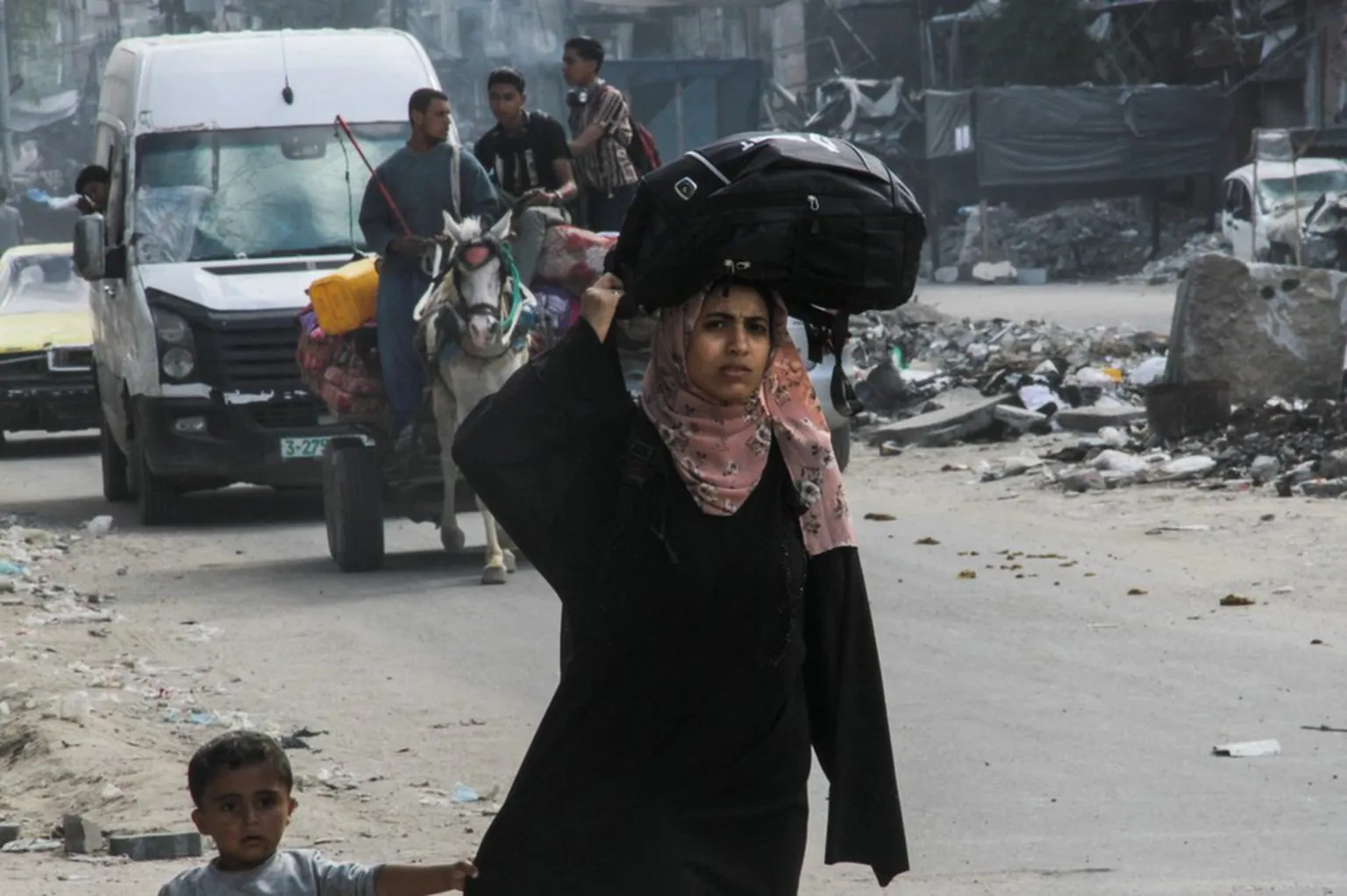AFP Published: May 13,2024 4:53 PM A group of Malian parties and civil society organizations…
Immigrant leaders say more education, outreach needed in state vaccination process
As Maine pushes forward with distributing the COVID-19 vaccine, immigrant leaders in the state are ramping up outreach efforts to ensure New Mainers have access to inoculation and information about the vaccine that can combat historically-based vaccine hesitancy.
Such efforts include flyers and videos with information about the vaccine, working with faith leaders to provide vaccine education, setting up vaccine appointments in advance, and working with doctors from the community to answer questions about the vaccine, among other initiatives.
But as that outreach gets underway, there are concerns that the large racial disparity Maine has seen in its COVID-19 cases could be repeated in the vaccination process.
Leaders worried about equity
One reason for that concern is that COVID-19 vaccines were approved faster than anticipated, meaning a vaccine equity-focused working group that includes immigrant leaders and representatives from the state — along with various other groups — is playing catch up, said Mufalo Chitam, executive director of the Maine Immigrants’ Rights Coalition.
Chitam, a member of that working group, said immigrant community leaders are currently finalizing translations for flyers with information about the vaccine that can be distributed across the state. She said that process took some time because the group needed to check with the Maine Center for Disease Control and Prevention that the information — which Chitam said is being translated into 17 languages — was accurate.
Chitam said that delay is an example of how outreach could have gone more smoothly had the working group been formed earlier.
“When the working group started, vaccination had already started, and then the tiers changed while we at the working group were still going, ‘Here’s what we’ll do,’” she said, referring to the state’s recent adjustment of its vaccination plan. “It’s like building the plane as you fly it.”
In addition to delays in reaching out to New Mainers, Chitam said another issue with Maine’s vaccination plan is that so far it has relied on traditional public health infrastructure to provide the vaccine to people.
Those systems often don’t work well for communities of color, Chitam explained. For example, she said older people in the immigrant community don’t typically live in nursing homes, where the vaccine is already being distributed. Instead, they ususally live in households within the community. That could present problems when it comes to vaccinating those people.
“The plan that the state has is there to support the traditional structures,” Chitam said.
Abdulkerim Said, executive director at New Mainers Public Health Initiative, added that the state’s plan doesn’t do enough to address the burden communities of color have faced from the virus in Maine.
As Beacon previously reported, the New Mainer community has been hit particularly hard by the virus. And throughout much of 2020, the state as a whole experienced a large overall racial disparity in its COVID-19 cases. For example, at the beginning of October, Black Mainers made up about 18 percent of the state’s cases and just 1.4 percent of its population. Since then, that chasm has narrowed, with Black people in Maine now making up 5.37 percent of the state’s cases. But that still far exceeds that group’s share of the state’s population.
“When it comes to the whole community, it still doesn’t seem like [the vaccine plan] is reflecting the people who are most impacted from COVID-19 getting prioritized,” Said argued.
New Mainers are ‘resilient people’
Despite such challenges, Fatuma Hussein, executive director of the Immigrant Resource Center of Maine, said leaders will continue to push for an equitable and speedy vaccination process in their communities.
“It’s not as fast as we would like,” she said. “But we are also resilient people. Remember, we went through war, so nothing shrugs us off. We are persistent.”
Thomas Ling, vice president of the Maine-based organization Unified Asian Communities (UAC), said working collaboratively with a variety of groups in the state will be crucial to having an effective vaccination strategy.
Thus far, one initiative Ling is particularly excited about is “ask the doctor sessions” in which community members can get on a call to question physicians about the vaccine, with translators available if needed.
With that and other initiatives, Ling said UAC and other groups are attempting to ensure the racial disparities seen in COVID-19 cases in Maine aren’t repeated during vaccination.
“My biggest goal would really be to cut that off at the head,” Ling said. “I think it really does stem back to the education piece.”
But along with education, immigrant leaders say a crucial part of getting people in the community vaccinated is having inoculation available in the right places.
Specifically, Chitam noted many New Mainers have observed that successful vaccination efforts in their native countries often featured vaccination at schools. As a result, Chitam said a letter will soon be sent to the state asking for vaccine clinics at schools in immigrant communities.
“Everyone said if there’s a vaccination at your school, we are going,” Chitam said. “Because that’s what we are accustomed to. So these are the things that we are now trying to build. Is the state going to listen to that? We don’t know, but that is the ask that we have.”
At a media briefing Thursday, Dr. Nirav Shah, director of the Maine CDC, said the state has looked into utilizing schools for vaccination clinics but is currently more focused on using “larger community sites that can accommodate higher traffic flow,” like the Scarborough Downs racetrack, which officials announced as a site Thursday.
“We haven’t ruled that out,” Shah said of using schools. “And if we get to a position where we have ample and adequate vaccine supply, then we can have all of those options simultaneously — large-scale community sites as well as medium-sized ones at schools.”
At the briefing, Shah added that the state has been working to collaborate with New Mainer communities on vaccination for a couple of months now, noting that many within those groups can access the vaccine in phase 1a of the state’s plan by virtue of being employed at a long-term care facility or hospital.
As the vaccination process continues, Shah said the Maine CDC will continue those education and outreach efforts.
“There’s always more communication that can be done,” he said. “And the process of communication is not simply started or finished just because we’ve launched a campaign or had a webinar. It’s an ongoing process and it occurs over weeks and months with multiple meetings and being responsive to new questions as they come out.”
Vaccine hesitancy a concern in New Mainer community
Immigrant leaders say a large part of the outreach and education efforts will need to focus on addressing vaccine hesitancy within marginalized communities.
Hussein said much of that hesitancy stems from how the medical system has historically treated people of color.
“We were the guinea pigs of vaccines,” Hussein said. “We were the people who were tested on for it to work for the white race. So when you hear about vaccines in our community, it’s not necessarily that we don’t believe in the science.”
As a result, Hussein said advocates are emphasizing that the COVID-19 vaccine is safe and has been tested in a rigorous and ethical manner.
Said added that another issue when it comes to vaccine hesitancy is that some mosque leaders have not been encouraging people to get the vaccine. To address the overall skepticism among New Mainers, he said plans are being developed to send community health workers door-to-door to answer questions and provide people with information about the vaccine.
“For me, I’m going to take the vaccine. But I know a lot of lay people who don’t have any science background are not ready to take the vaccine yet unless they have some sort of education,” Said explained.
Ling agreed that education and outreach efforts will be crucial. He said the message UAC is pushing to combat vaccine hesitancy is that getting inoculated is better than the potential alternative.
“The risk of getting the vaccine is much lower than the risk of getting COVID,” he said. “That’s the thing we want to convey to our community. We understand it’s not 100 percent without risk. But the benefits far outweigh the risk.”
Top photo: Marko Geber/Getty Images
SOURCE: Maine Beacon




